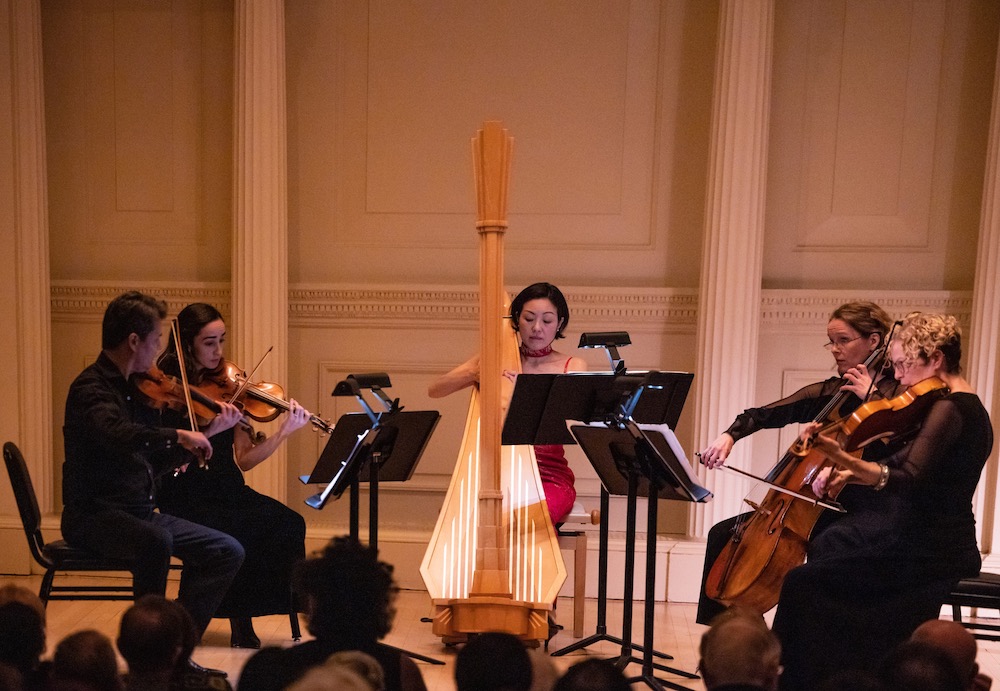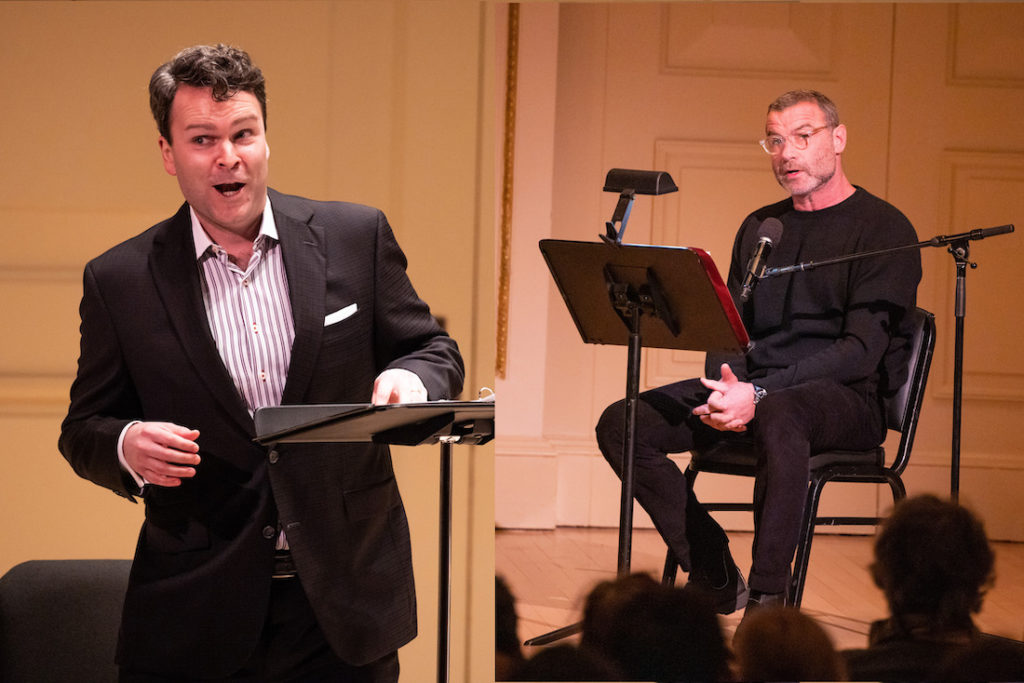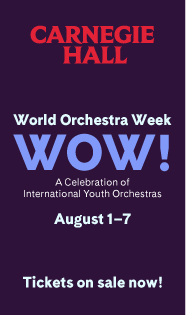Met Chamber players run ‘la gamme’ of Debussy, Caplet, Saint-Saëns, Poulenc

The Met Orchestra Chamber Ensemble returned to Carnegie Hall on Monday evening with a program of French music that was both varied and fun. There was something for everyone here whether tastes ran toward the lyrical, sensuous, madcap or macabre.
The concert opened with Camille Saint-Saëns’s Tarantelle, composed in 1857, when the young Paris Conservatory product was in his early twenties and conceived of his tarantella as a virtuoso showpiece for flute and clarinet. (Helpful to its early success was the backing of an admirer: Goiachino Rossini, the toast of Paris, who led the work’s cheering first-time listeners to believe it was his.)
On Monday, Seth Morris, the Met’s principal flutist, and clarinetist Jessica Phillips traded arpeggios and trills — played at amazing speed — and joined in rapid-fire scales that ended in boisterous woodwind screams. Katelan Trần Terrell was the anchor on piano, keeping the whole musical pinwheel of color and rhythm spinning without coming undone. It was an exhilarating, entertaining opener.
More subtle pleasures followed with cellist Jerry Grossman and pianist Thomas Lausmann performing Debussy’s Cello Sonata in D minor. Composed in 1915, the sonata marked the composer’s return to productivity after a hiatus occasioned by his declining health and desolate mood over the carnage of World War I. (He would die of cancer three years later.)
Debussy evoked Couperin and Rameau in the sonata, but its colors and harmonies make it uniquely his. Grossman’s playing in the Prologue was particularly evocative and lovely, at times little more than a sigh. He and Lausmann exchanged musical jabs as they brilliantly executed the intricate pizzicati of the Sérénade — a volley as exciting to watch as it was to hear. In the Finale, Grossman’s sound was lean and sinewy while Lausmann’s dreamy playing at times summoned up the lapping waves of La mer.
The first half of the concert ended with André Caplet’s Conte fantastique for harp and strings, composed between 1922 and 1923. Inspired by Edgar Allan Poe’s plague parable, The Masque of the Red Death, Caplet recreated the attempts of Poe’s doomed Prince Prospero to avoid the pandemic by hiding in his abbey. The sheer theatricality of the music has led to performances with a narrator on stage reading excerpts from Poe’s tale between movements. On Monday, the guest speaker was actor Liev Schreiber.

Caplet’s music for Conte fantastique is intense, but the clarity and precision of the string playing imbued it with an eerie delicacy that heightened the tale’s suspense. Schreiber’s straightforward delivery and resonant voice added to the drama, which culminated in Mariko Anraku playing the twelve strokes of midnight on the harp. The masked figure of Red Death arrived in a torrent of tremolos, glissandos and harmonics that struck genuine terror in one’s heart.
The second of the two works by Debussy on the program was his Danse sacrée et danse profane for harp and string orchestra. Composed in 1904, it was written at the request of the Pleyel Company to promote their recently invented chromatic harp. which had all twelve tones of the chromatic scale — each on its own string in rows that cross but do not touch. The chromatic harp’s limitations prevented it from gaining popularity and Danse is routinely played — as it was on Monday — on the modern-day pedal harp.
Debussy created two different soundscapes in the work: the first mysterious, with subtle musical colors; the second, dancelike and even humorous at times. Both were expressed in scintillating, ravishing sound from the strings, which for all their lushness were light and transparent. There was a similar weightlessness, coupled with sensuality, to Anraku’s playing, as the strains of the harp coursed through one of Debussy’s most beautiful works.
If the Debussy is an embodiment of the sublime, Poulenc’s secular cantata Le Bal masqué for baritone and chamber orchestra is a celebration of the ridiculous. Composed in 1932, its text was drawn from surrealist poems by Max Jacob, one of the composer’s closest friends, who died in a Nazi internment camp in 1944. Scored for oboe, clarinet, bassoon, cornet, violin, cello, percussion and piano, it is a riot of color and energy.
For Poulenc, it was essential for a singer to believe “above all in the words he utters.” Baritone Joshua Hopkins not only believed in Jacob’s poetry, he made it come alive in all of its brilliant absurdity. Hopkins’s voice was just one of his assets. His physicality was another: The singer preened, pranced and posed in a madcap tour-de-force performance that captured the folly, as well as the humanity, of the poet’s characters — whose foibles, delusions and quirks the composer enshrined in music.
The Met Orchestra Chamber Ensemble performers March 6 with Yannick Nézet-Séguin as conductor and pianist in music of Brahms and Strauss. carnegiehall.org
